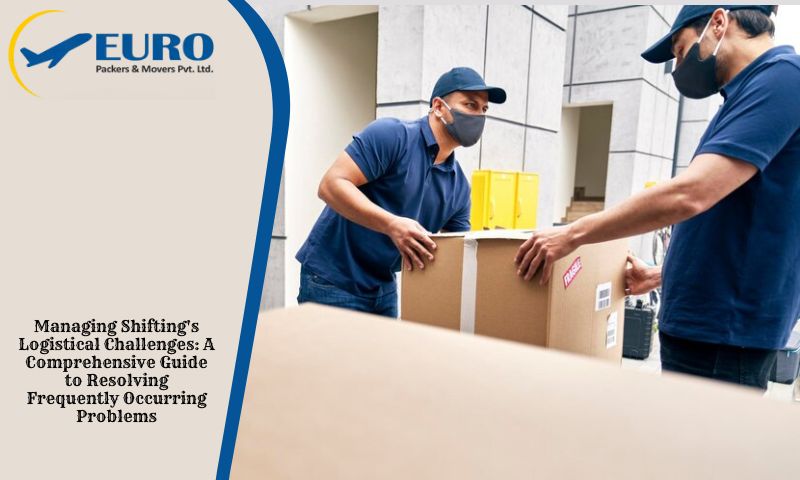Welcome To Euro Packers & Movers - Get a Quote

Among the many difficulties encountered in this endeavor, logistical problems frequently take the lead. Overcoming these obstacles is essential for reducing interruptions and preserving company continuity, from scheduling to coordinating several moving components. This post will examine the typical logistical issues that arise during Office Shifting and provide helpful advice on resolving them.
Managing the timeframe efficiently is one of the main logistical issues in office migration. Increased downtime from delays may lower production and even result in money losses. Make a thorough schedule covering the pre-move planning, packing, the moving day itself, and the post-move settling-in tasks to overcome this obstacle. Ensure the timetable is communicated to all parties involved and backup plans are prepared for any delays.
A significant logistical difficulty is keeping track of all workplace assets, from furniture to IT equipment. Catalog every item using an extensive inventory management system. This helps in packing and unpacking more effectively and locating misplaced or broken objects during the transfer. For increased precision, use barcoding or digital tracking systems.
When moving offices, communication must be done effectively. Chaos may result from a lack of coordination between the moving company, team members, and other service suppliers. To ensure everyone agrees, set up clear lines of communication, assign a relocation coordinator, and have frequent meetings. To facilitate communication and teamwork, use project management applications and tools.
Transferring vital IT systems and data during an office move may be difficult logistically if done incorrectly. To resolve this problem, find possible issues by doing a comprehensive IT audit before the transfer. Create a thorough data migration strategy to ensure all systems are operationally and smoothly transferred to the new site. For further experience, think about employing IT specialists with office relocation experience.
Sensitive equipment and large office furniture need to be moved with extreme care as per the best Packers and Movers. Invest in expert movers with expertise in managing fragile objects and focusing on office relocation. To make it simple to reassemble at the new place, ensure all furniture is dismantled, packed, and labeled. Consider purchasing insurance if you want more security against losses sustained during transit.
One logistical problem that cannot be disregarded during office migration is navigating legal and regulatory standards. Make sure you secure all required licenses and permissions well in advance. Speak with legal experts to analyze contracts, leases, and compliance requirements related to the new site. If these problems are not resolved, there may be financial and legal consequences.
Transportation logistics may provide a variety of difficulties, from sudden road closures to traffic delays. Try to arrange the transfer when it is less busy than possible to avoid these problems. Plan the transportation route closely with the moving firm and ensure backup plans are ready for unexpected events. Proactively addressing transportation difficulties may be achieved by regular updates and discussions with the moving crew.
Moving offices is a complex operation that requires careful preparation and skillful handling of logistical issues. Businesses may effectively traverse the challenges of office relocation by addressing concerns, including inventory tracking, communication, IT systems migration, schedule management, and legal considerations. Organizations may reduce interruptions, guarantee a seamless transition, and create the conditions for ongoing success in their new office space by being well-prepared and taking the initiative.
Direction: Click Here